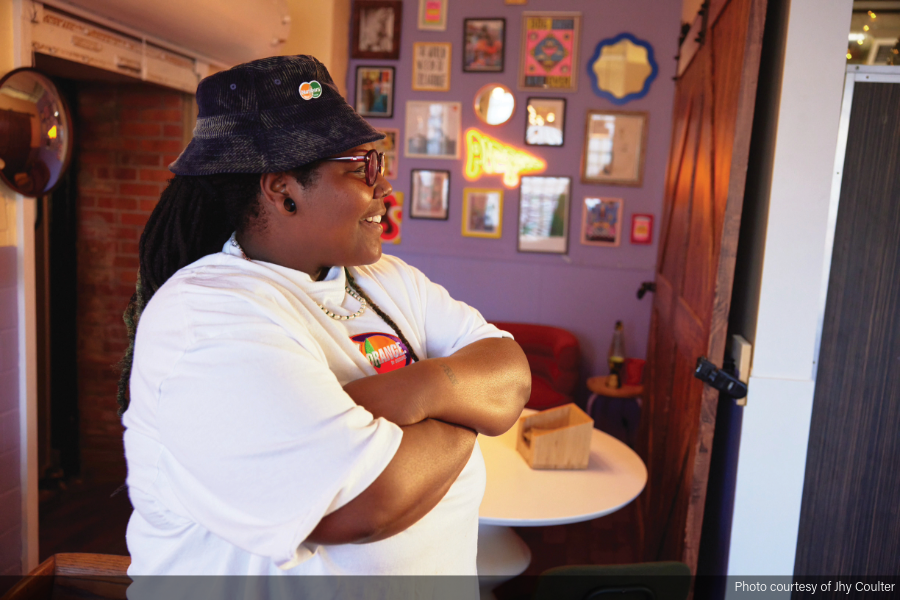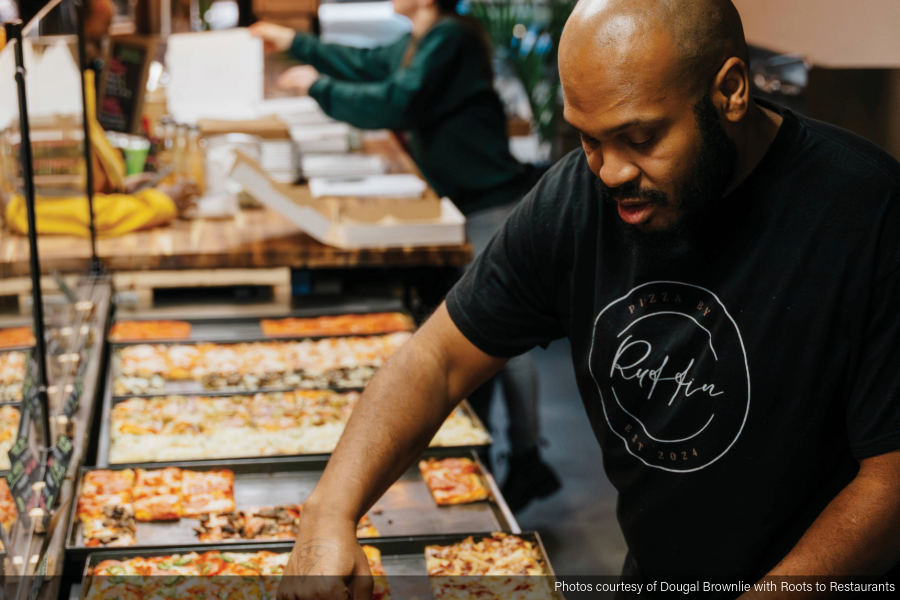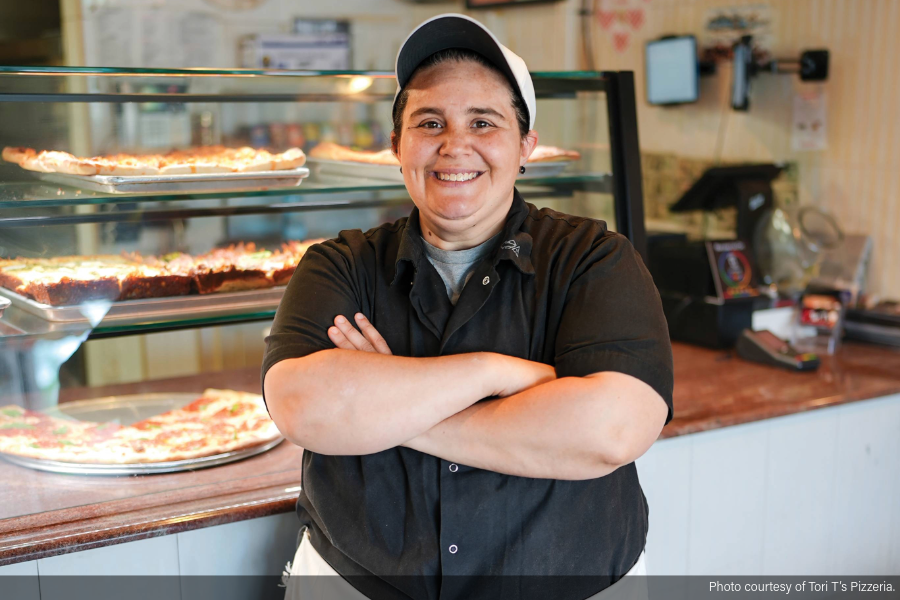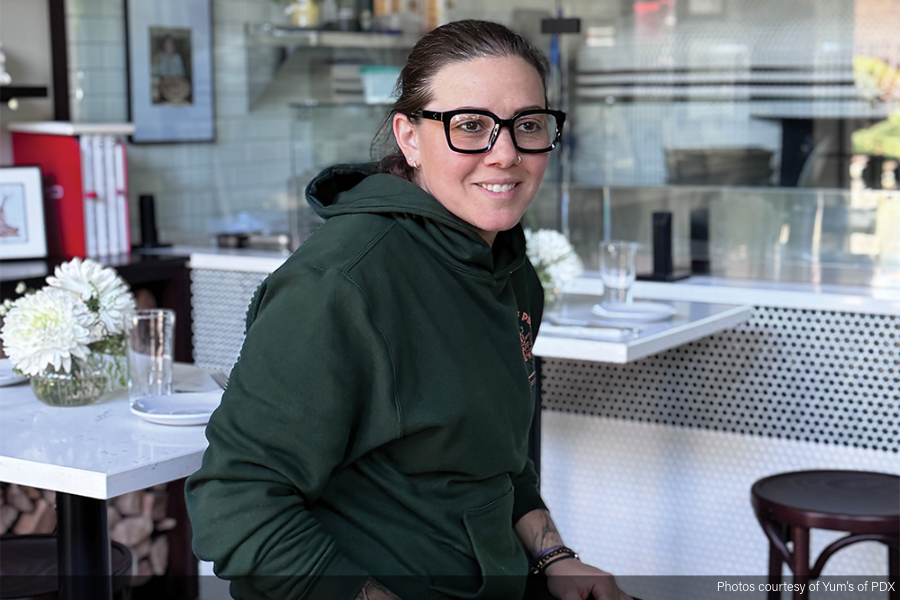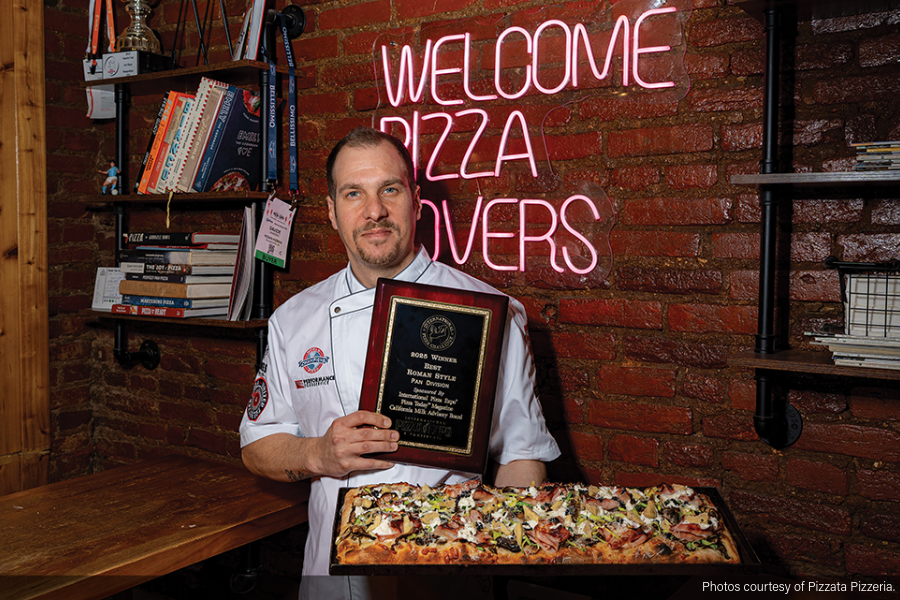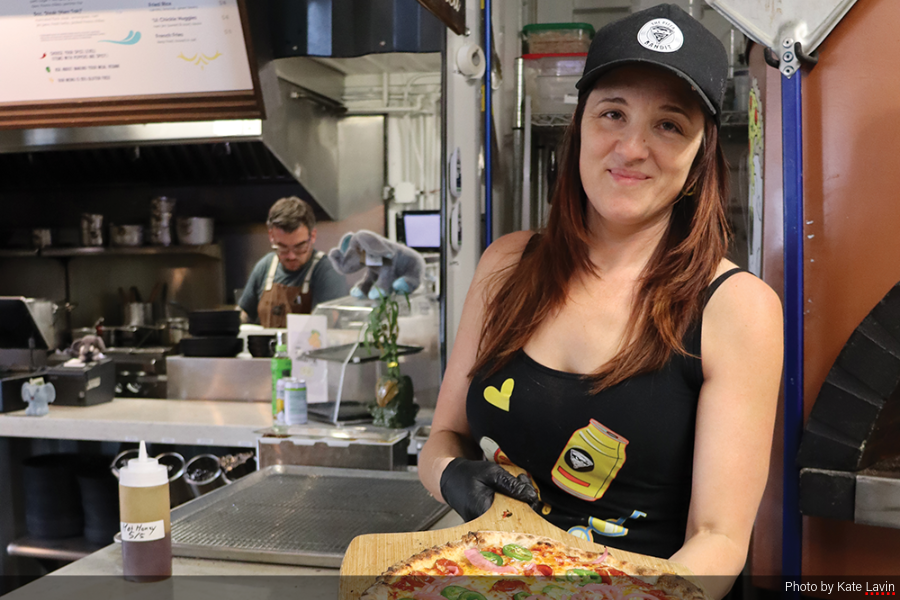
What do your customers really want? It’s the single most important question a restaurant owner can ask — yet you could spend your entire career chasing the answer. Even with instant feedback on Twitter, Yelp!, Facebook and similar sites, it’s nearly impossible to sift constructive criticism from the endless pages of noise. In an effort to solve this dilemma, we went directly into the root of the matter and interviewed customers at some of New York’s most popular pizzerias. The survey consisted of one simple question: “What are the most important characteristics in a pizzeria?” We polled dozens of people from cities across the U.S., asking them to write down their top three responses. The result will give you a window into the minds of your pizzeria’s most valuable asset: your customer base.
A warm atmosphere is an absolute must. Of the 88 people we polled, 53 mentioned a restaurant’s atmosphere as one of their top concerns in our customer survey. That’s over 60 percent, so if you haven’t put serious thought into your physical space you might want to revise your game plan. Phrases like “homey setting,” “warmth” and “old-world ambience” were common responses, suggesting that earthy tones and dim lighting are preferable to settings that are bright and flashy. Alex Lasker from Manalapan, New Jersey, wants to see a “big oven in a dimly lit pizzeria.” This directly reflects the ever-growing Neapolitan trend, with its attractive wood-burning ovens suggesting the traditional hearth while simultaneously providing a visual focal point that creates continuity between the kitchen and dining room.
Even though hole-in-the-wall spots are intriguing to some pizza lovers, the overall cleanliness of the space is clearly of concern. Ten people responded with notes about maintenance of restrooms and dining areas. Just be careful not to confuse cleanliness with sterility, because several comments pertaining to atmosphere noted an aversion to restaurants that feel like chains.
More than 37 percent of the people we interviewed listed restaurant staff as crucial to their dining experience. Your customers’ personal interactions have just as much to do with their comfort level as does the restaurant’s ambiance. Several indicated a preference for “mom and pop” pizzerias with one participant directly suggesting a “friendly family run staff.” This isn’t to suggest you hire your third cousin, but the staff culture is clearly perceptible to customers. Kevin Lewis from Seattle wants “to feel like I’m sitting down with family,” reinforcing the notion that people want to feel like guests in your home rather than customers of your business.
There’s also a noticeably positive view of owner interaction within our survey responses. Guyer McCracken said, “It creates a warm atmosphere when I know the owner.” People love to receive attention from the person whose name is on the outside of the building. Paulie Gee’s in Brooklyn gets high ratings because of their food, but nearly every review comments on how Paulie Gee himself visits each table in the restaurant. Seeing the face behind the name induces a level of comfort that can overcome the stress of a forgotten drink or botched order.
Variety isn’t just the spice of life — it’s also an essential component of a successful restaurant. Considering the ever-growing sea of dining options, it should be no surprise that our poll indicates customer interest in variety. Issues of food and drink selection were mentioned in 36 percent of responses, with the majority of participants showing interest in alcoholic beverages. Beer was mentioned more often than wine and the availability of hard liquor seems to be of no concern to those we interviewed. Survey respondents did show a clear interest in drink pairings, particularly with regard to beer. If you don’t currently suggest beverage pairings via servers or menus, you may want to consider it as a way to boost both your customers’ experience and ticket totals. This is a particularly suitable method for introducing your customers to local and craft brews that aren’t familiar to your customers.
As far as food is concerned, several interviews revealed a desire for multiple crust options. Several families polled experienced internal disputes over the preference for thick or thin crusts, with younger respondents preferring the prior and older customers the latter. The vast majority of surveys mentioned “Neapolitan,” “thin” and “light” as desirable attributes for pizza bases. Nancy from Beulah, Colorado, wants “a chewy crust with real flavor.” Although nobody made direct requests about whole wheat, gluten free, organic or other health-oriented options, the general preference seems to be for keeping things on the lighter side.
Most wish lists considered best-case scenarios for pizza eating situations, such as family outings and date nights, but a strong contingent of 22 percent embraced the reality of busy schedules by including delivery and take-out among their top concerns. Technology is making ordering a pizza easier than ever, yet only a few survey participants mentioned online ordering or mobile apps as priorities. If you have these systems in place, be sure to let customers know about them.
Financial convenience was not a great concern for most, with words like “cheap” and “value” appearing on only 11 percent of customer surveys. The current trend of $1 slices (or even cheaper) in New York seems to cut more into the fast food segment than pizzerias, proving that sales made on price point create little interference with those made on quality-based assessments. Perhaps value campaigns like coupons and daily deals are only giving your customers a discount on food they were already planning to purchase.
However significant the previously mentioned factors may be, none came close to the widespread demand for good food. An incredible 95 percent of responses listed food quality as a top priority. Even though your service is perfect, your restaurant is spotless, the beverage list is unstoppable and deliveries reach their destinations within minutes, it’s meaningless if the food isn’t delicious. Tammy V. from St. Louis went so far as to say, “I honestly don’t care if it is a hole in the wall as long as it is good.” This short survey proves that food quality prevails even in a harsh economic climate with deals and gimmicks coming from every angle. If this is a shock, you may need to reevaluate more than just your restaurant.
Scott Wiener owns and operates Scott’s Pizza Tours in New York City.

